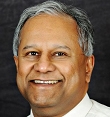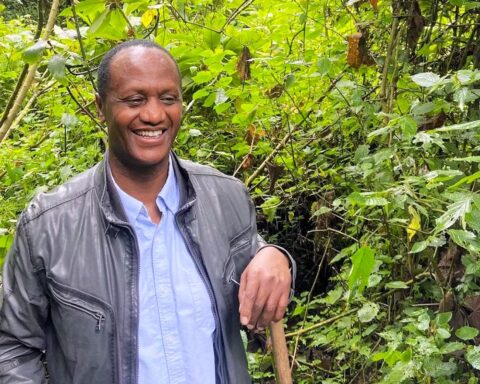Protecting the rights of migrant workers has become more crucial than ever as they are too often regarded as commodities or economic and political problems instead of human beings. This is the unitary message being put out by various experts as the UN General Assembly in New York holds a crucial discussion on international migration and development on October 3 and 4.
While the UN committee on the Rights of Migrant Workers (CMW) is urging all countries to join an international treaty that protects the rights of migrant workers, a group of 72 independent human rights experts urged world governments and intergovernmental organizations to adopt a migrant-centered approach.
“The International Convention on the Rights of Migrant Workers and their Families (ICRMW) is one of the core international human rights treaties,” said CMW Chairperson Abdelhamid El Jamri.
“Migration is in essence a fundamental human phenomenon, so it is essential for discussions on international migration to be focused on human rights,” said Chaloka Beyani on behalf of the independent experts who have been charged by the UN Human Rights Council to address specific country situations and thematic issues in all parts of the world.
In an open letter to UN member-states, these experts called on states to discuss, among others, key issues like the decriminalization of irregular entry and stay; the move away from detention as a tool in addressing irregular migration, and the development of alternatives to detention; how to combat xenophobia and xenophobic violence against migrants; and the rights of migrant children, both in countries of transit and destination.
“Migrants continue to suffer abuse, exploitation and violence despite the legal human rights framework in place, which protects migrants as human beings, regardless of their administrative status or situation,” added the Special Rapporteur on the human rights of migrants, Francois Crépeau, who is attending the UN event. “Human Rights must therefore be at the center of discussions at the High-level Dialogue.”
Word of caution
However, Harald Bauder, the Academic Director of Ryerson Centre for Immigration and Settlement (RCIS) in Toronto, had a word of caution. “The open letter hits on a very important issue that needs to be discussed. But too much focus on the human rights aspect of it undermines efforts to focus on their social rights,”
“The language of human rights can be easily interpreted by governments in various ways to exclude the very people it intends to protect,” Prof. Bauder said. He said current immigration policies across the world are designed to exploit labour and pitch workers against each other. “They are powerful tools to reduce wages and labour standards.”
Prof. Bauder said a universal declaration for a common approach to migration is essential to stop countries and provinces within them from becoming competitors in this inequitable game of exploitation.
Echoing these sentiments, Mr. El Jamri of CMW said ratifying the ICRMW does not commit states to giving migrant workers special treatment. It does not create new rights nor establish additional rights specifically for migrant workers. “What it does do is give specific form to standards that protect all human beings so that they are meaningful within the context of migration.”
Canada not a signatory
Changing patterns of migration and the exploitation and discrimination faced by migrant workers in sectors such as construction and agriculture have made protecting their rights more crucial than ever, Mr. El Jamri stressed.
The ICRMW, in force for 10 years, has been ratified by 47 states. However, no major destination countries, among them Canada, the U.S., EU member states and Gulf countries, have ratified it, even though it reflects the rights set out in other core human rights treaties to which many states are already party.
More than 200 million people worldwide are international migrants; of these some 30 million are estimated to be irregular migrants.
“The convention is the best strategy to prevent abuses and to address the vulnerability that migrant workers face as well as to maximize the benefits of migration,” Mr. El Jamri said. The CMW Committee he heads is composed of 14 independent human rights experts and oversees implementation of the convention by states. Many of the states are not only nations of origin but are now transit and destination countries given the changing patterns of migration.
Ranjit is a Toronto-based writer with interest in Canadian civic affairs, immigration, the environment and motoring. Maytree and Al Jazzera English alumnus.





